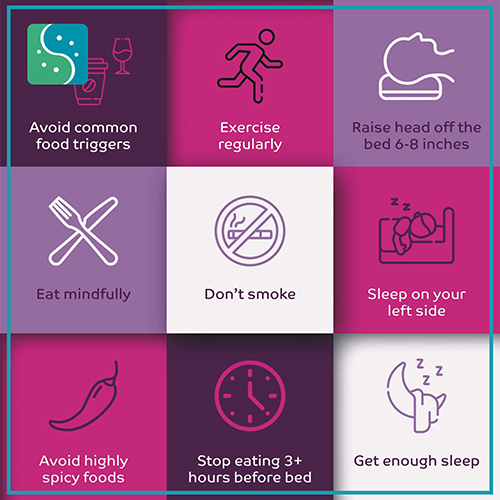INDIGESTION also called dyspepsia or an upset stomach is discomfort in your upper abdomen. Indigestion describes certain symptoms, such as belly pain and a feeling of fullness soon after you start eating, rather than a specific disease. Indigestion can also be a symptom of other digestive disorders.
Homoeopathy for indigestion helps relieve its symptoms and treats the problem on a long term basis. Homoeopathy offers a natural and highly effective solution for the complaint of indigestion. Homoeopathic medicines are beneficial for both acute as well as chronic cases of indigestion.
Homoeopathic medicines are prescribed after studying the individual’s complete history. It enhances the body’s self-healing mechanism (immunity) and thus improves the overall health and quality of life of an individual.
Homoeopathy is strongly recommended to treat the symptoms of indigestion as it gives a permanent cure and treats the disease from its root cause.
Indigestion is pain or discomfort after eating, while your stomach is digesting. Almost everyone has experienced occasional indigestion. But for some people, it’s a daily occurrence that diminishes their quality of life. When indigestion becomes a significant problem, you may find yourself seeking healthcare for answers and relief. Sometimes there’s an underlying gastrointestinal (GI) disease that needs treatment. But sometimes there’s no simple explanation for these symptoms.
If you have indigestion, you may have:
There are many possible causes of indigestion. These can range from dietary and lifestyle habits to the side effects of medications and serious underlying conditions.
Lifestyle
You experience indigestion when your body cannot digest food as normal. This may be the result of eating a lot or eating too fast.
Spicy, greasy, and fatty foods also increase the risk of indigestion. Lying down too soon after eating can make it harder to digest food. This increases your risk of abdominal discomfort.
Other common causes of poor digestion include:
Medication
Indigestion can be a side effect of taking specific medications. Antibiotics, medications that treat or prevent bacterial infections, can also irritate the digestive system and cause indigestion as a side effect.
Several medical conditions can also cause indigestion. These include:
Sometimes you may experience indigestion with no apparent cause. The medical term for this is functional dyspepsia.
Your doctor is likely to start with a health history and a thorough physical exam. Those evaluations may be enough if your indigestion is mild and you're not experiencing certain symptoms, such as weight loss and repeated vomiting.
But if your indigestion began suddenly, and you are experiencing severe symptoms or are older than age 55, your doctor may recommend.
Mild indigestion can often be helped with lifestyle changes!

Small sips of water when you’re experiencing indigestion may help a little. If you have acid reflux in your oesophagus, the water may help wash the acid back down into your stomach. If your stomach seems slow to digest and release your food, a little water may help move things along while also diluting the acid. But don’t drink so much that it expands your stomach, or it might have the opposite effect.
Indigestion is common, and it’s usually not serious. But if you have it often, it can become a real problem. It can interfere with your eating, sleeping and quality of life. It might be a symptom of a medical condition, and rarely, it might be a serious one. Homoeopathy is based on the principle of individualisation and symptom similarity by using holistic approach. Your digestive system is complex, and many things can affect it. Whatever may be the cause homoeopathic medicines are strongly recommended to treat the disease condition from its root and thus providing a permanent cure.